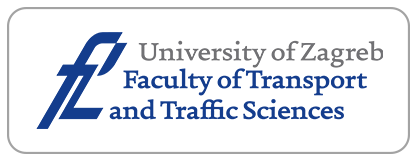A simulation-based dynamic traffic assignment model with combined modes

Downloads
This paper presents a dynamic traffic assignment (DTA) model for urban multi-modal transportation network by constructing a mesoscopic simulation model. Several traffic means such as private car, subway, bus and bicycle are considered in the network. The mesoscopic simulator consists of a mesoscopic supply simulator based on MesoTS model and a time-dependent demand simulator. The mode choice is simultaneously considered with the route choice based on the improved C-Logit model. The traffic assignment procedure is implemented by a time-dependent shortest path (TDSP) algorithm in which travellers choose their modes and routes based on a range of choice criteria. The model is particularly suited for appraising a variety of transportation management measures, especially for the application of Intelligent Transport Systems (ITS). Five example cases including OD demand level, bus frequency, parking fee, information supply and car ownership rate are designed to test the proposed simulation model through a medium-scale case study in Beijing Chaoyang District in China. Computational results illustrate excellent performance and the application of the model to analysis of urban multi-modal transportation networks.
Downloads
Paz, A., Chiu, Y.C.: Adaptive traffic control for large-scale dynamic traffic assignment applications, Transportation Research Record, Vol. 2263, 2011, pp. 103-112
Sundaram, S., Koutsopoulos, H.N., Ben-Akiva, M., Antoniou, C., Balakrishna, R.: Simulation-based dynamic traffic assignment for short-term planning applications, Simulation Modelling Practice and Theory, Vol. 19, No. 1, pp. 450-462
Omrani, R., Kattan, L.: Demand and supply calibration of dynamic traffic assignment models past efforts and future challenges, Transportation Research Record, Vol. 2283, 2012, pp. 100-112
Chen, L.W., Hu, T.Y.: Flow equilibrium under dynamic traffic assignment and signal control-an illustration of pretimed and actuated signal control policies, IEEE Transactions on Intelligent Transportation Systems, Vol. 13, No. 3, 2012, pp. 1266-1276
Caggiani, L., Dell’Orco, M., Marinelli, M., Ottomanelli, M.: A metaheuristic dynamic traffic assignment model for O-D matrix estimation using aggregate data, Proceedings of EWGT 2012 - 15th Meeting of the Euro Working Group on Transportation, Paris, France, Vol. 54, 2012, pp. 685-695
Abdelghany, K.F.S.: Stochastic dynamic traffic assignment for intermodal transportation networks with consistent information supply strategies, Ph.D. thesis, Civil, Architectural, and Environmental Engineering, University of Texas, Austin. 2001a
Abdelghany, K.F.S., Mahmassani, H.S.: Dynamic trip assignment-simulation model for intermodal transportation networks, Transportation Research Record, Vol. 1771, 2001b, pp. 54-60
Hoseini, S.M.S., Vaziri, M.: Modelling drivers’ behaviour as a crash risk reduction process, Promet-Traffic & Transportation, Vol.20, No. 3, 2008, pp. 139-146
Pei, Y.L, Wang, Y.G., Zhang, Y.: Microscopic model of automobile lane-changing virtual desire trajectory by spline curves, Promet-Traffic & Transportation, Vol. 22, No. 3, 2010, pp. 203-208
Dundovic, C., Bilic, M., Dvornik, J.: Contribution to the development of a simulation model for a seaport in specific operating conditions, Promet-Traffic & Transportation, Vol. 21, No. 5, 2009, pp. 331-340
Yang, Q.D.: A simulation laboratory for evaluation of dynamic traffic management systems, Ph.D. thesis, Massachusetts Institute of Technology, Boston, 1997
Namekawa, M., Ueda, F., Hioki, Y., Ueda, Y., Satoh, A.: General purpose road traffic simulation system with a cell automaton model, International Congress on Modelling and Simulation (MODSIM05), Melbourne, Australia, Dec. 2005
Bham, G.H., Benekohal, R.F.: A high fidelity traffic simulation model based on cellular automata and car-following concepts, Transportation Research Part C, Vol. 12, No. 1, 2004, pp. 1-32
McShane, W. R., Roger P. R.: Traffic Engineering. 1990
Cascetta, M., Nuzzolo, A., Russo, F., Vitetta. A.: A modified logit route choice model overcoming path overlapping problems: specification and some calibration results for interurban networks, 13th International Symposium on Transportation and Traffic Theory, Lyon, France, July 1996
Ziliaskopoulos, A.: Optimum path algorithms on multidimensional networks: analysis, design, implementation, and computational experience, Ph.D. thesis, Department of Civil Engineering, University of Texas, Austin, 1994
Kihara, T.S., Shimizu, Y., Arakawa, N., Shiba, K.: Fast link-disjoint path algorithm on parallel reconfigurable processor DAPDNA-2, 14th Asia-Pacific Conference on Communications (APCC2008), Tokyo, Japan, Oct. 2008




















